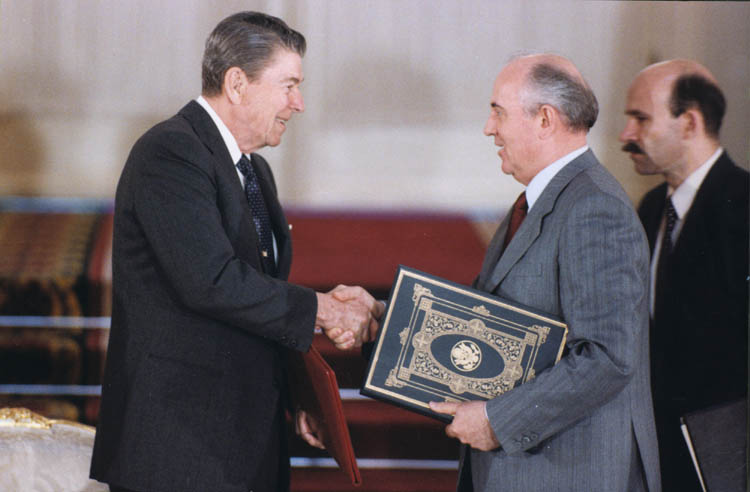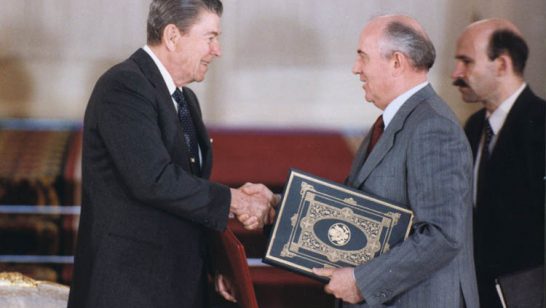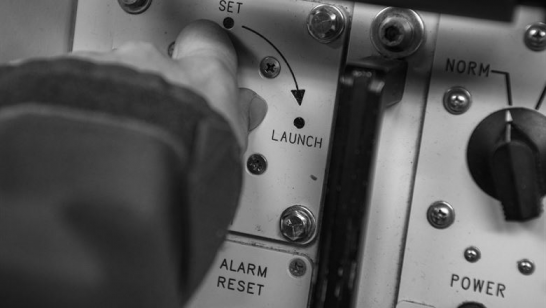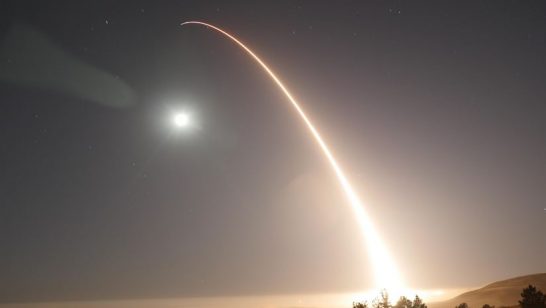
Presbyterians are familiar with “the great Ends of the Church”: those six missions which the church seeks to accomplish. The arms control/disarmament community, which has many of its own canons, could use a similar “Great Ends” statement in order that its members might remember what they should be seeking to accomplish.
The purpose of arms control is not to preserve existing agreements. The purpose of arms control is to create and preserve agreements that continue to remain meaningful and viable. Arms control agreements must meet two goals:
- They must be observed faithfully by all of the signatories; and
- They should provide for the national security requirements of all of the signatories.
This remains true in good times and especially in the bad. At the same time, we must be clear-eyed: arms control agreements cannot be successful if the governments negotiating them do not believe they are in their national interest. Arms control treaties fail because they do not meet either, or both, of these goals. At the time of writing, Russia stands in violation of at least nine separate arms control treaties and or agreements[1]:
- The Helsinki Final Act;
- The Budapest Memorandum;
- The Istanbul Document;
- The Presidential Nuclear Initiatives of 1991 and 1992;
- The Open Skies treaty;
- The Vienna Document; and
- The INF treaty;
- And now, as Britain – and the world – are acutely aware, we know Russia has violated the Chemical Weapons Convention by its use of a chemical weapons agent in 2018 in Salisbury.
Nor do these nine complete the charge list. Russia’s predecessor state, the Soviet Union, lied for decades about its violations of the Biological Weapons Convention until defectors from the program forced Boris Yeltsin to acknowledge that an active BW program existed and pledged it would be shut down, but doubts linger as to whether Russia has truly foresworn biological weapons.[2] And, as far back as 2009, the US Congressional Strategic Posture Commission Report (the Perry-Schlesinger Commission) noted “Apparently Russia and possibly China are conducting low yield [nuclear weapons] tests” , this being in violation of the P5 agreement not to conduct further nuclear weapons tests pursuant to the signing of the Comprehensive Test Ban Treaty.[3]
An arms control agreement in which one party is in compliance and the other is cheating does not constitute effective arms control; indeed, it represents unilateral restraint. Moscow’s record of non-compliance betrays the Kremlin’s utter contempt not only for the agreements it is violating, but also for the Western governments with whom it entered into those agreements. Coupled with President Putin’s Khrushchev-like bellicose nuclear rhetoric, the dangerous military activities and exercises he supports, and the massive rearmament program he presides over, the odds that Russia will return to complying with its obligations are slight.
Apologists are quick to point out, however, that Russia remains in compliance with its obligations under “New START” and bemoan the possibility that, should the treaty expire in early 2021 without extension or replacement, it will end the last remaining arms treaty between the United States and Russia. Moreover, they fear this would initiate “a new nuclear arms race” and usher in a dangerous new era in Russia’s relationship with the West.
But let us examine these assertions:
- The notion that New START’s demise will produce a new nuclear arms race is risible on its face. Russia is in the midst of an eight-year long modernisation programme for all of its nuclear forces, from the short-range to the intercontinental; in contrast, the United States will not field a new nuclear system until the middle of the next decade.
- Russia is, on a near constant basis, today seeking to blackmail NATO nations by threatening them with nuclear attack; it is seeking to subvert their democracies through cyber-attack, social media manipulation, and forging alliances with anti-NATO populist political parties.[4] It is rebuilding its entire military establishment. Short of launching a military attack on or forcing a military confrontation with a NATO member, it is difficult to imagine a more dangerous set of Russian policies.
At the time of its signing in 2010, New START represented what I called a “modest but useful” agreement when I testified to the Senate in its support.[5] My view was that the treaty’s verification provisions (watered down as they were, at Russian insistence, from those of the original START treaty) would create increased transparency and mutual confidence. In addition, I believed the treaty’s limits on traditional strategic nuclear forces would constrain the Russian nuclear threat to the United States. Sadly, neither assumption proved to be a good one.
- Moscow’s decision to cheat on other treaties, infiltrate Western bodies politic, and aggressively attempt to blackmail NATO destroyed any hopes for increased transparency and mutual confidence. In particular, Russian cheating activity was masked by continued lies and deceptive practices, approved at the highest levels of the Russian government.[6]
- While New START indeed has capped (to date, and to the best of our knowledge) growth of Russia’s traditional strategic forces, President Putin has directed major growth and modernisation in Russia’s shorter-range nuclear forces, thereby increasing significantly the threat to NATO’s European members. He has also sponsored the development and production of an entire series of non-traditional strategic nuclear systems which are not covered by the treaty, and which will increase the threat to the US homeland.
A new treaty that would extend New START on the condition that negotiations begin immediately to replace it with a verifiable agreement that limits all US and Russian nuclear weapons would meet both of the goals for an arms control agreement set out at the beginning of this commentary. If Moscow seeks to impose constraints on the US modernisation programme, which will begin fielding a modernised Triad within the next decade, such a treaty would be in its interest. Whether Putin can see clearly to act in his own interest, however, remains to be seen. Yet the broader implication for future arms control is that we should not expect any new agreements to be of consequence unless and until the opposing parties believe negotiating, and abiding by, such agreements are in their national security interests.
[1] Office of the Secretary of Defense, Nuclear Posture Review, February 2018, pages 73-4
[2] John-Thor Dahlburg, “Russia Admits It Violated Pact on Biological Warfare”, Los Angeles Times, Sept 15 1992; and Ken Alibek’s 1999 autobiography, Biohazard
[3] US Congressional Strategic Posture Commission Report (US Institute of Peace Press, Washington DC, 2009) p 83
[4] The Henry Jackson Society, Foreign Nuclear Developments: A Gathering Storm”, London, 2015, pages 3-4 and page 6
[5] Franklin C Miller, Senate Armed Service Committee on July 27, 2010
[6] Concerning Russia’s violation of the INF Treaty, see Director of National Intelligence Daniel Coats remarks on November 27, 2018 placing blame for the violation on the Russian government. Concerning Russian infiltration of Western bodies politic, see for example: Office of the Director of National Intelligence, “Assessing Russian Activities and Intentions in Recent US Elections”, January 6, 2017. Concerning blackmail of NATO, see Henry Jackson Society, op. cit.
The opinions articulated above also do not necessarily reflect the position of the European Leadership Network or any of its members. The ELN’s aim is to encourage debates that will help develop Europe’s capacity to address pressing foreign, defence, and security challenge.




